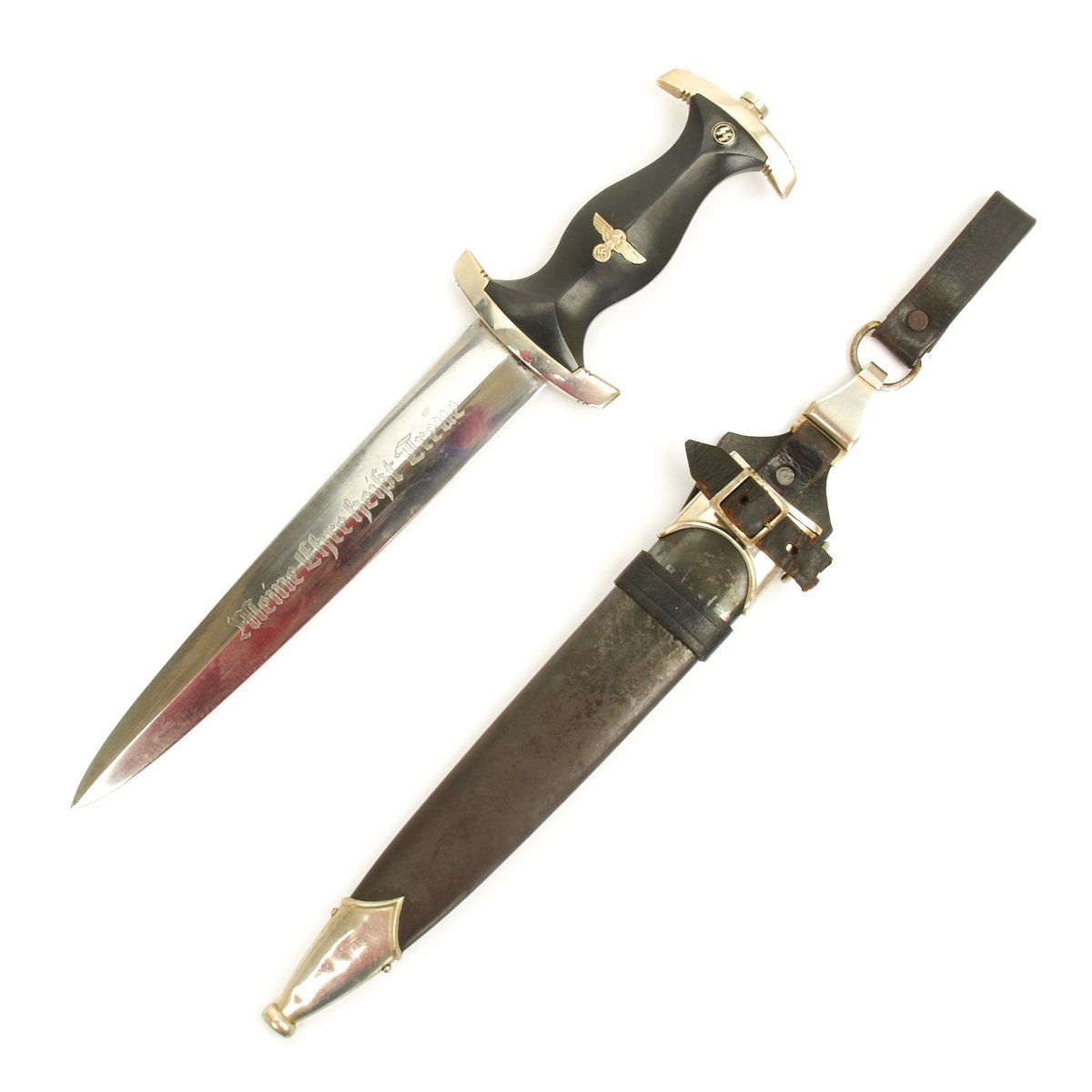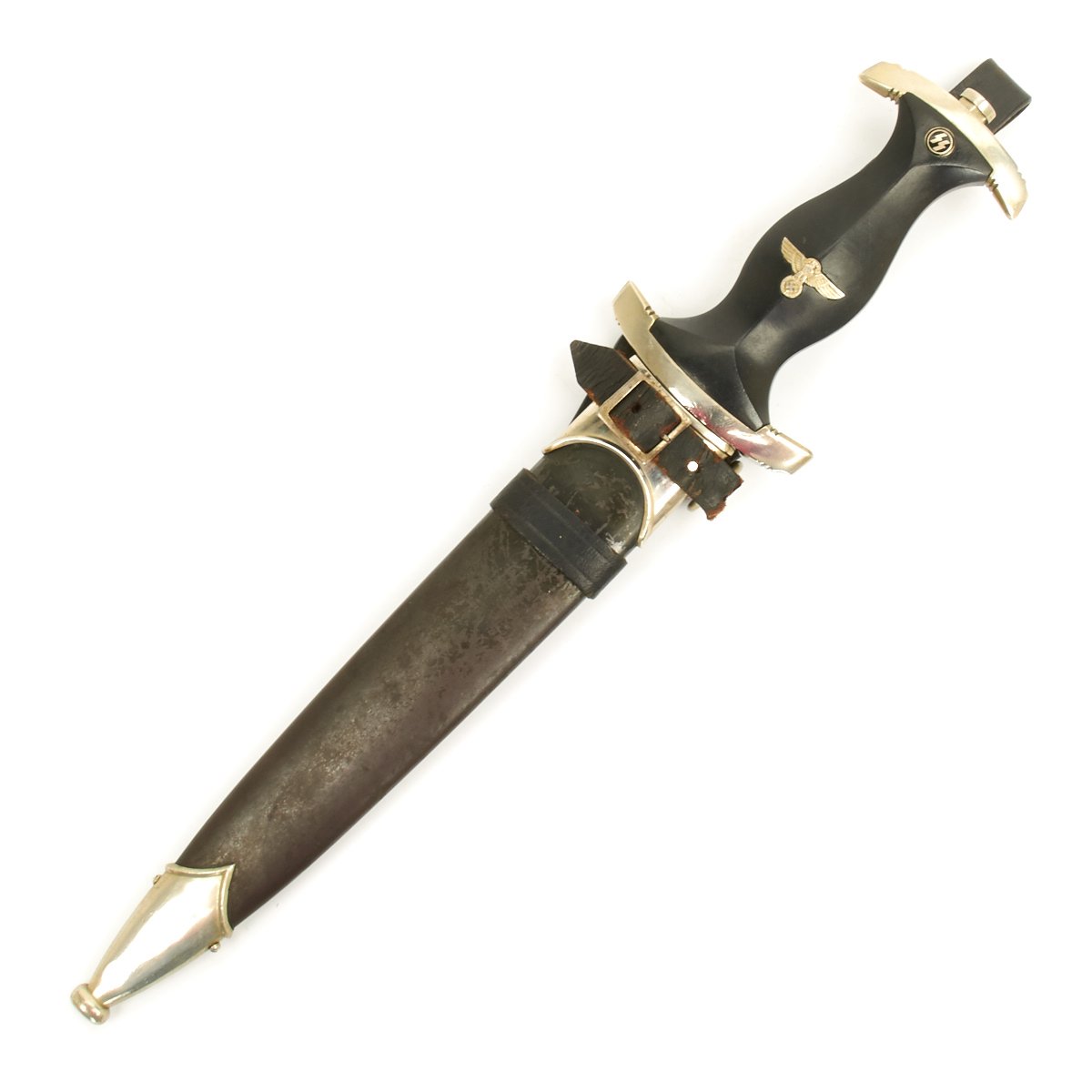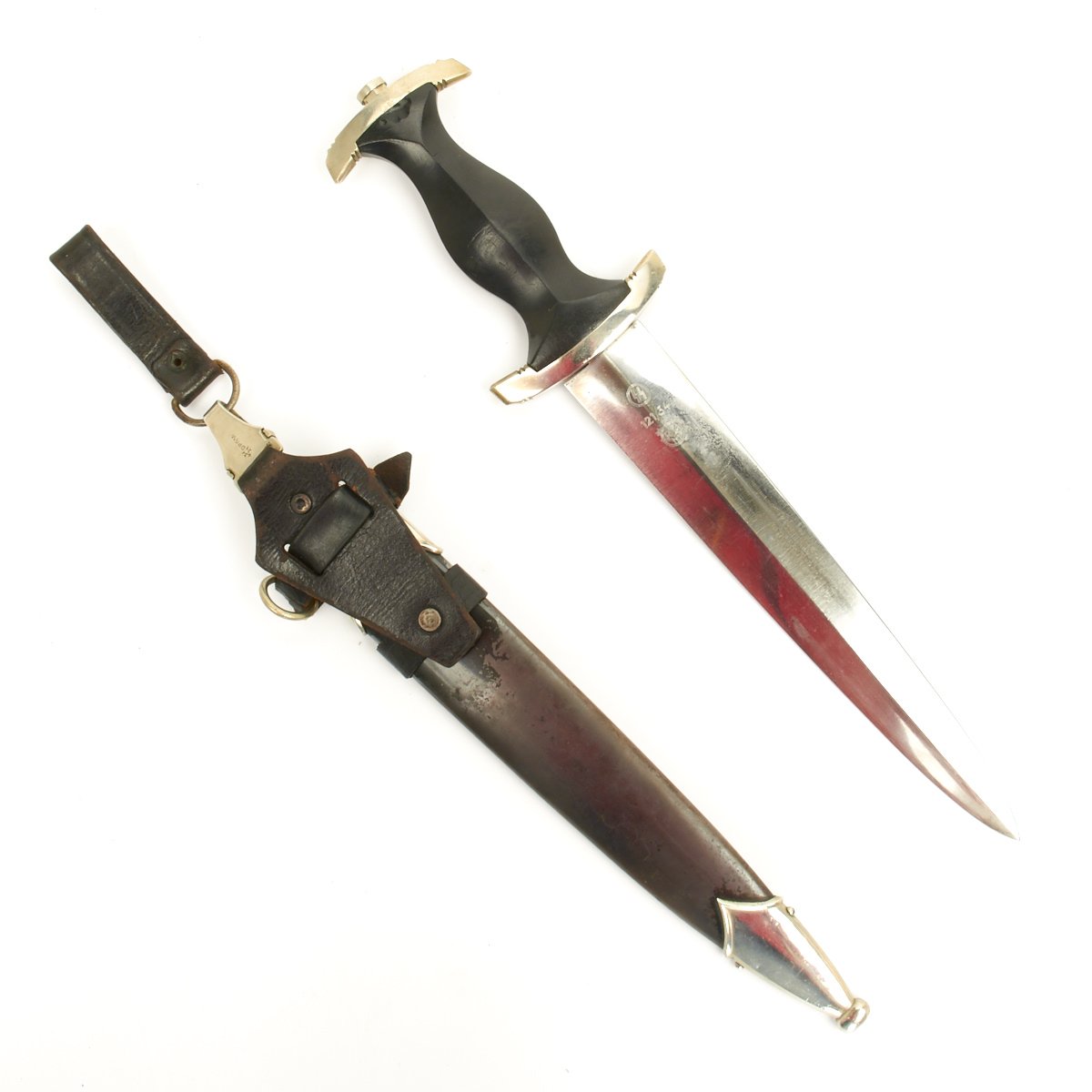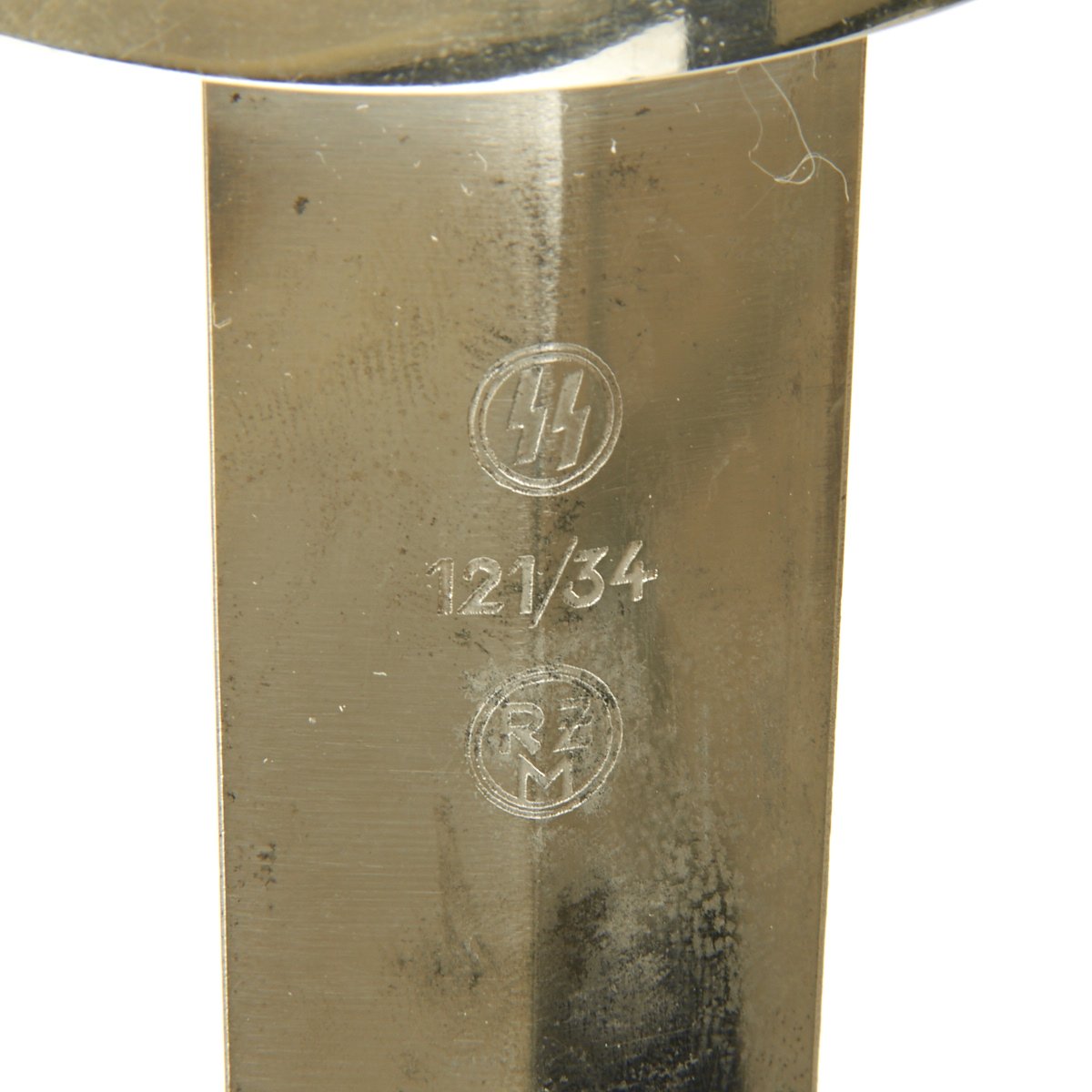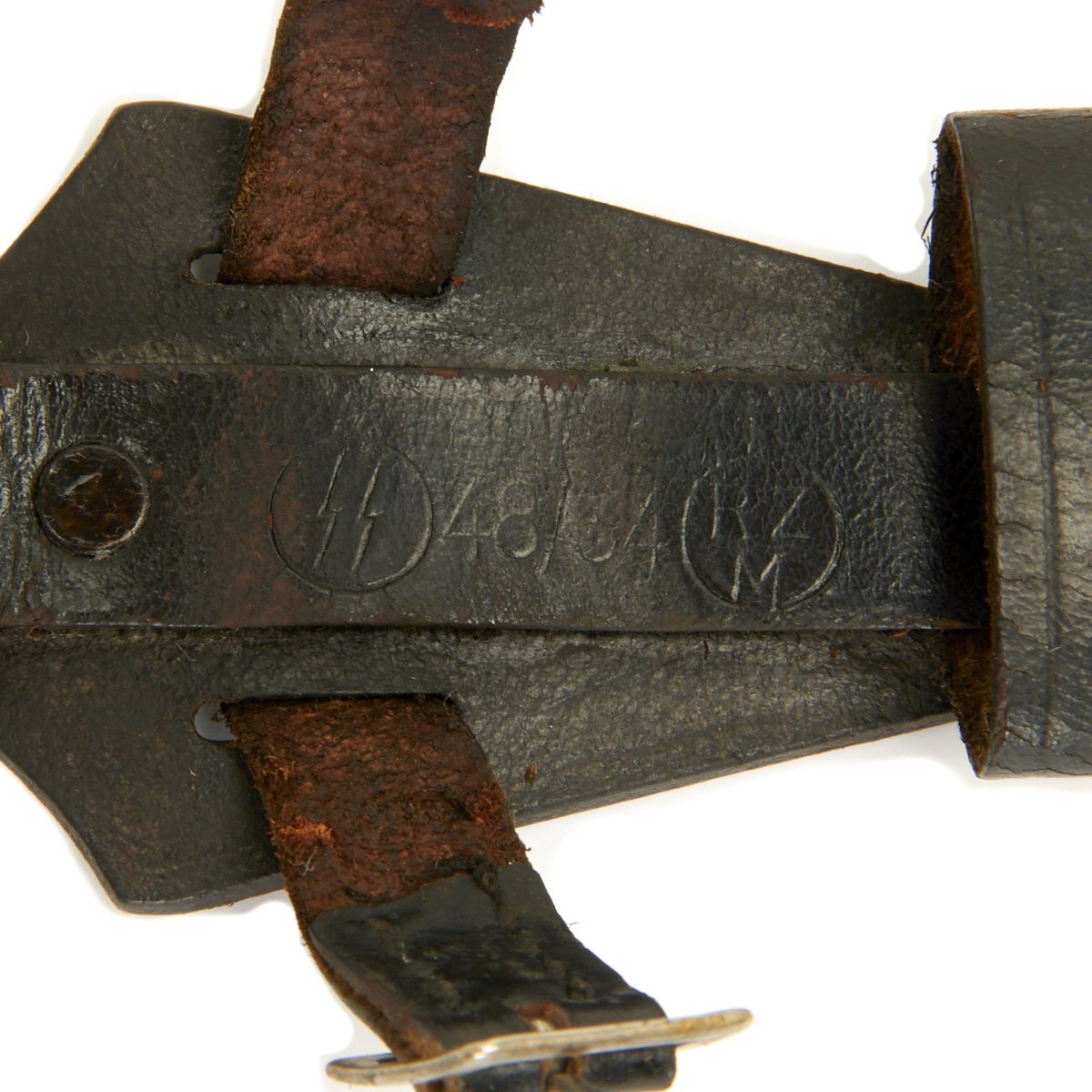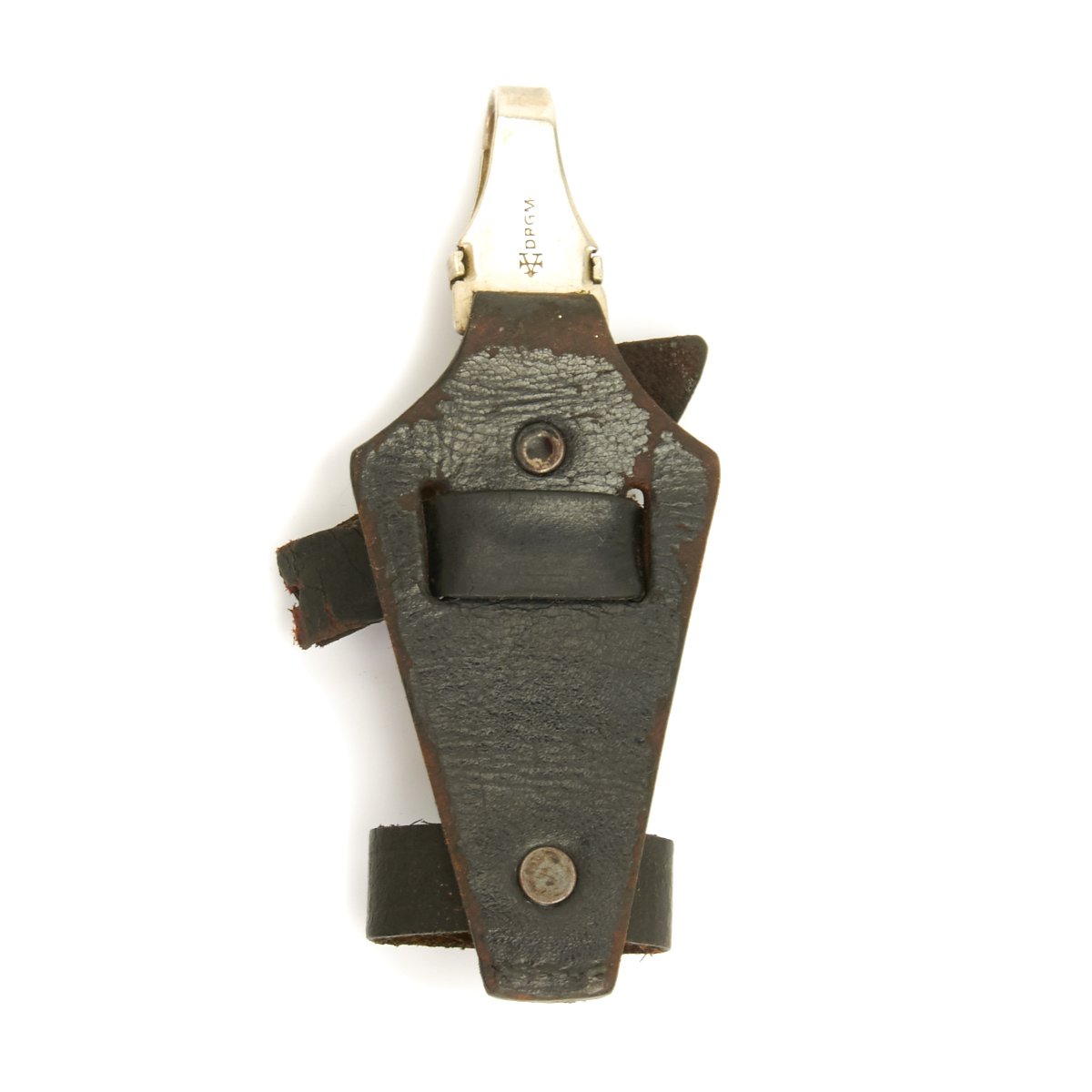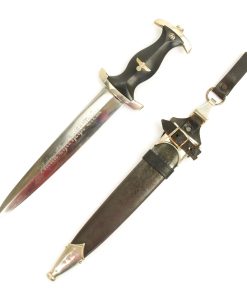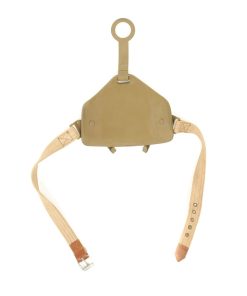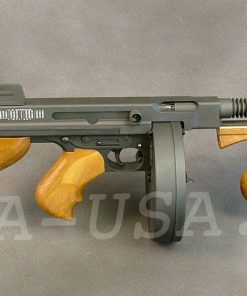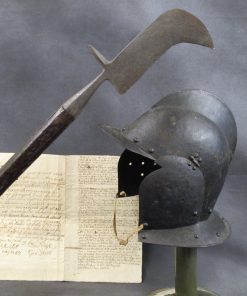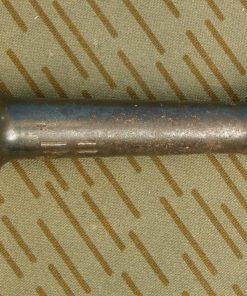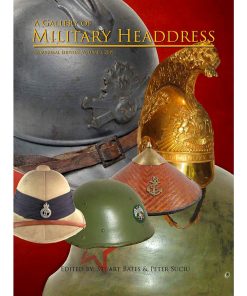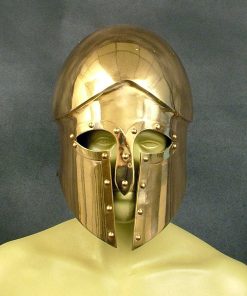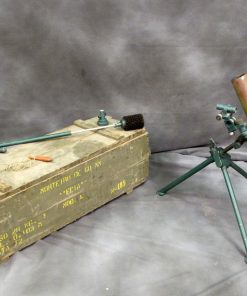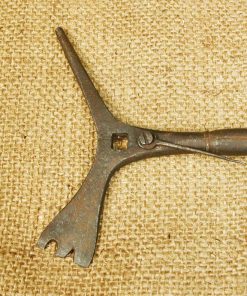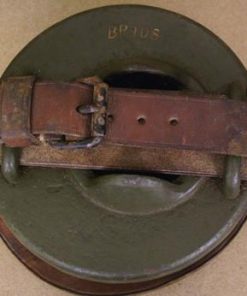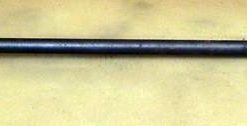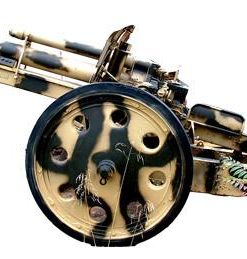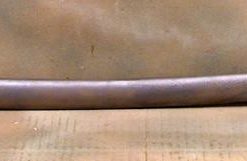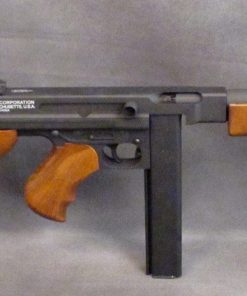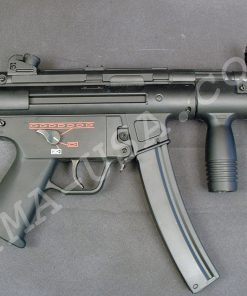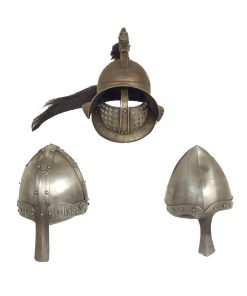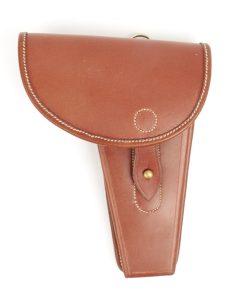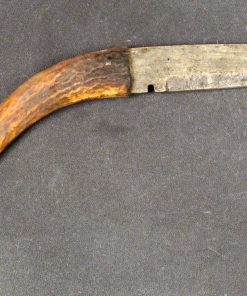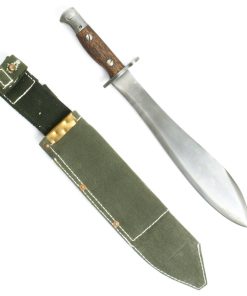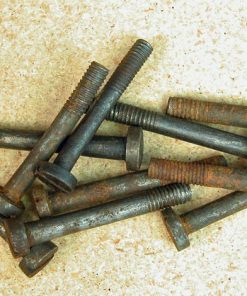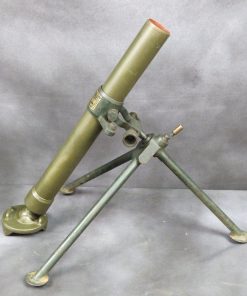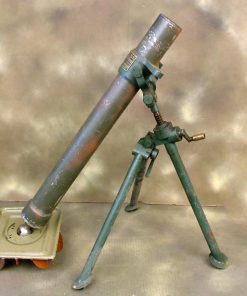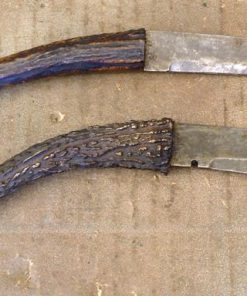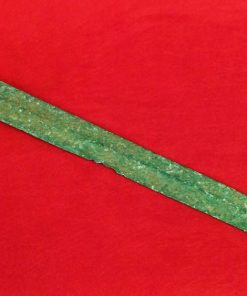Original German WWII M33 Early SS Dagger with Vertical Leather Hanger – RZM 121/34 SS Original Items
$ 3.495,00 $ 873,75
Original Item: Only One Available: The SS (Schutzstaffel) was originally formed in 1925, ostensibly to act as a small, loyal bodyguard unit to protect the Führer, Adolf AH. Under the direction of the Reichsführer-SS Heinrich Himmler, the SS grew to be the most ruthless and feared organization of the 20th century. They were the vanguard of NSDAPsmand eventually controlled nearly every function of German life and much of Occupied Europe. The SS dagger was introduced in 1933. Early on, members of the SS were awarded their daggers during a ceremony at the Feldherrnhalle Memorial in Munich. The annual ritual, charged with mysticism and meant to evoke the traditions of medieval Teutonic knights, was held on 9 November, the date of the unsuccessful Munich Putsch of 1923. Both officers and enlisted men wore the identical dagger until 1936. After this time, only enlisted men wore the M1933 dagger.
The SS Dagger was equipped with nickel crossguards with an ebony wood grip. The black grip contained a National eagle with swas insignia recessed in the center area and an SS sigrunne button inset at the top. On early examples the scabbard shell surface was factory blackened using a metal bluing process. The scabbard had nickel mounts. The SS blade was a polished type containing the SS motto, Meine Ehre Heisst Treue (My Honor is Loyalty). Early examples were mostly hand-fit. Production of later examples was more standardized, using cheaper, nickel-plated fittings with black painted scabbard shells. They could be held with a standard belt hanger, or a much rarer vertical hanger.
The blade on this example is marked with RZM 121 / 34 SS, the contract information for the knife, along with the date of 1934. The Reichszeugmeisterei, or RZM, was was based at the Brown house in Munich and NSDAP party headquarters in Berlin. The RZM ensured that the manufacturers of military items were consistent in design, quality of materials and other characteristics of the items. Additionally, the Schutzstaffel (SS) had their own particular standards, and issued RZM contracts separate from other NSDAP registries. This unfortunately means that a good number of these codes have never been deciphered, as no listing was able to be found. As such, makers such as 48, 120, 121, 188, 285 and many others are still unknown to this day.
The blade remains bright and still retains a good deal of the original factory polish cross grain, especially close to the cross guard. There are small age spots and traces of past oxidation, and the blade also has the usual runner marks. This blade still grades in very good condition. The SS motto, Meine Ehre heißt Treue is crisp but has some wear with about 30% of the factory blackening is in the letter fonts in the backgrounds. The edge of the blade does not show any sharpening after the original factory grind, and is still in excellent condition. The blade shoulders perfectly meet the lower crossguard contour, and is solid in the grip.
The crossguards of this dagger and tang nut are in good condition throughout, and are of the earliest solid nickel silver construction. They have smooth surfaces, good crisp edges and precise accent grooves. There are a few small dents and cuts, but otherwise they are close to new. The tang nut is solid nickel silver, and does not appear to have ever been removed.
The ebony grip is a nice example showing in great shape except for some denting and shallow scratches. Early examples such as this were hand fit, which could result in cracking over time, but this example has very little. The symbol button is positioned at about 7:00 o’clock, and the enamel surfaces are nearly perfect. The silvered SS symbol and double circles around them have a nice matching patina with the nickel still intact. The nickel grip eagle is the “high-necked” type with the beak pointing slightly up. It remains in crisp condition, showing little wear to the bird’s head, breast and wing feathering and to the talons, wreath or swas. The eagle has lifted a bit on one side due to wood shrinkage.
The scabbard shell is a solid example being straight as an arrow with a few small dents. The “anodizing” is mostly intact, with just a few spots of rust. The matching solid nickel silver scabbard mounts are in good condition. The lower fitting has some dents and the ball end has been crushed due to the weaker nickel alloy used in early models (later ones used steel).
The scabbard is held securely in the extremely rare leather vertical hanger, topped with a nickel hanger clip. The leather on the hanger itself is marked SS 48 / 34 RZM. The leather is in good condition, though it has dried over time, and the securing strap is partly torn and otherwise very somewhat delicate due to leather deterioration. The nickel clip itself is marked with a “barred A” followed by D.R.G.M. (Deutsches Reiches Gebrauchs Musterschutz) – meaning it is a protected patented design under the Reich Government. This design was registered to the owner of the “Barred A” trademark, F. W. Assmann & Söhne of Lüdenscheid, a large maker of belts, buttons, and other accoutrements.
An excellent chance to own a great condition early SS M33 Dagger with an extremely rare hanger.
Fast Shipping with Professional Packaging
Thanks to our longstanding association with UPS FedEx DHL, and other major international carriers, we are able to provide a range of shipping options. Our warehouse staff is expertly trained and will wrap your products according to our exact and precise specifications. Prior to shipping, your goods will be thoroughly examined and securely secured. We ship to thousands clients each day across multiple countries. This shows how we're dedicated to be the largest retailer on the internet. Warehouses and distribution centres can be located throughout Europe as well as the USA.
Note: Orders with more than one item will be assigned a processing date depending on the item.
Before shipping before shipping, we'll conduct a thorough inspection of the items you have ordered. Today, the majority of orders will be delivered within 48 hours. The delivery time will be between 3-7 days.
Returns
The stock is dynamic and we cannot completely manage it because multiple stakeholders are involved, including our factory and warehouse. So the actual stock may alter at any time. It's possible that you may not receive your order once the order has been made.
Our policy is valid for a period of 30 days. If you don't receive the product within 30 days, we are not able to issue a refund or an exchange.
You can only return an item if it is unused and in the same state as the day you received it. You must have the item in its original packaging.
Related products
Uncategorized
Uncategorized
Armored Burgonet Helmet & Polearm from Scottish Castle Leith Hall Circa 1700 Original Items
Uncategorized
Uncategorized
Uncategorized
Angolan Rebel 1970s era 60mm Inert Display Mortar from Angolan Civil War Original Items
Uncategorized
Uncategorized
Uncategorized
Australian WWII Owen MK1 Machine Carbine SMG Custom Fabricated Replica with Sling Original Items
Uncategorized
Uncategorized
Uncategorized
Band of Brothers ORIGINAL GERMAN WWII Le. F.H. 18 10.5cm ARTILLERY PIECE Original Items
Uncategorized
Uncategorized
Uncategorized
Uncategorized
Uncategorized
Uncategorized
Uncategorized
Uncategorized
